Create your cloud storage with ownCloud 7 on Ubuntu 14.10
ownCloud is a web suite that provides a cloud storage over the network, data can be uploaded via web browser or using software client. Data will be stored on the server and can be downloaded or access any time with browser or desktop client or smartphone app. The project is based on PHP and a SQLite, MySQL, Oracle or PostgreSQL database, so it can run on all platforms that meet these requirements. It provides almost all possibility of functions that are available on commercial suites; it is released under AGPLv3 license, so you can setup own cloud storage server without any additional cost. Commercial version of ownCloud is also available.
Features:
The following are the list of features available on ownCloud.
- File storage in conventional directory structures
- Cryptography
- Synchronization of data with th desktop, web client or mobile app.
- Calendar (also as CalDAV)
- Task scheduler
- Address book (also as CardDAV)
- Music streaming (through Ampache)
- User and group administration (via OpenID or LDAP)
- Sharing of content across groups or public URLs
- Online text editor with syntax highlighting and code folding
- Bookmarking
- URL shortening Suite
- Photo gallery
- PDF viewer (using pdf.js)
- Viewer for ODF Files (.odt, .odp, .ods)
New Features in ownCloud 7:
- Improved sharing between two owncloud installation.
Faster and more efficient design, suitable for mobile devices
Store, Access and Control
Here is the small guide to setup ownCloud 7 on Ubuntu 14.10.
Download and Setup:
Download and add repository key on Ubuntu 14.10
wget https://download.opensuse.org/repositories/isv:ownCloud:community/xUbuntu_14.10/Release.key sudo apt-key add - < Release.key
Add owncloud repository.
sudo sh -c "echo 'deb https://download.opensuse.org/repositories/isv:/ownCloud:/community/xUbuntu_14.10/ /' >> /etc/apt/sources.list.d/owncloud.list"
Update the repository.
sudo apt-get update
Install ownCloud.
sudo apt-get install owncloud
You would be asked to create administrative password for MySQL,
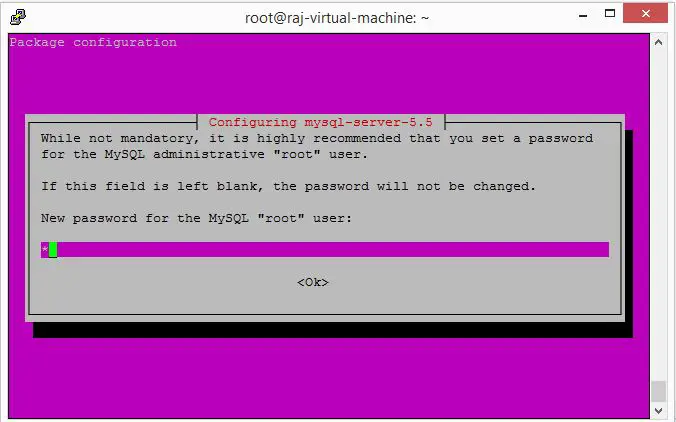
Repeat the password to confirm.
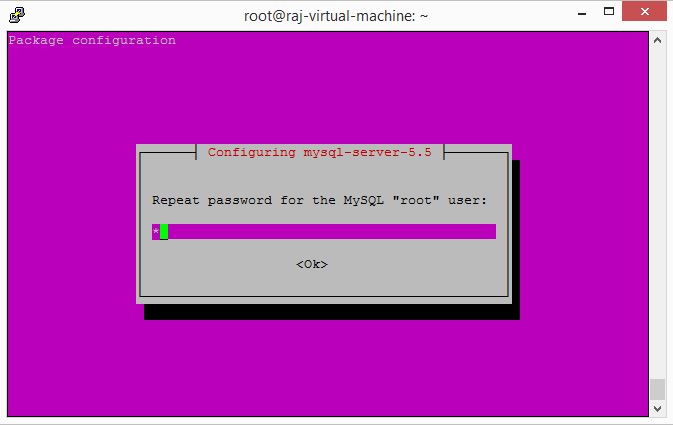
Create Database:
MySQL server must be started before creating the database, login to MySQL server.
mysql -u root -p
Create database called “clouddb”
create database clouddb;
Allow “clouddbuser” to access the “clouddb” database on localhost with predefined password.
grant all on clouddb.* to 'clouddbuser'@'localhost' identified by 'password';
Configure ownCloud:
Open up web browser, point a url to https://your-ip-address/owncloud. Browser will automatically take you to ownCloud setup page. You have option to choose database (SQLite, MySQL and PostgreSQL) of your choice.
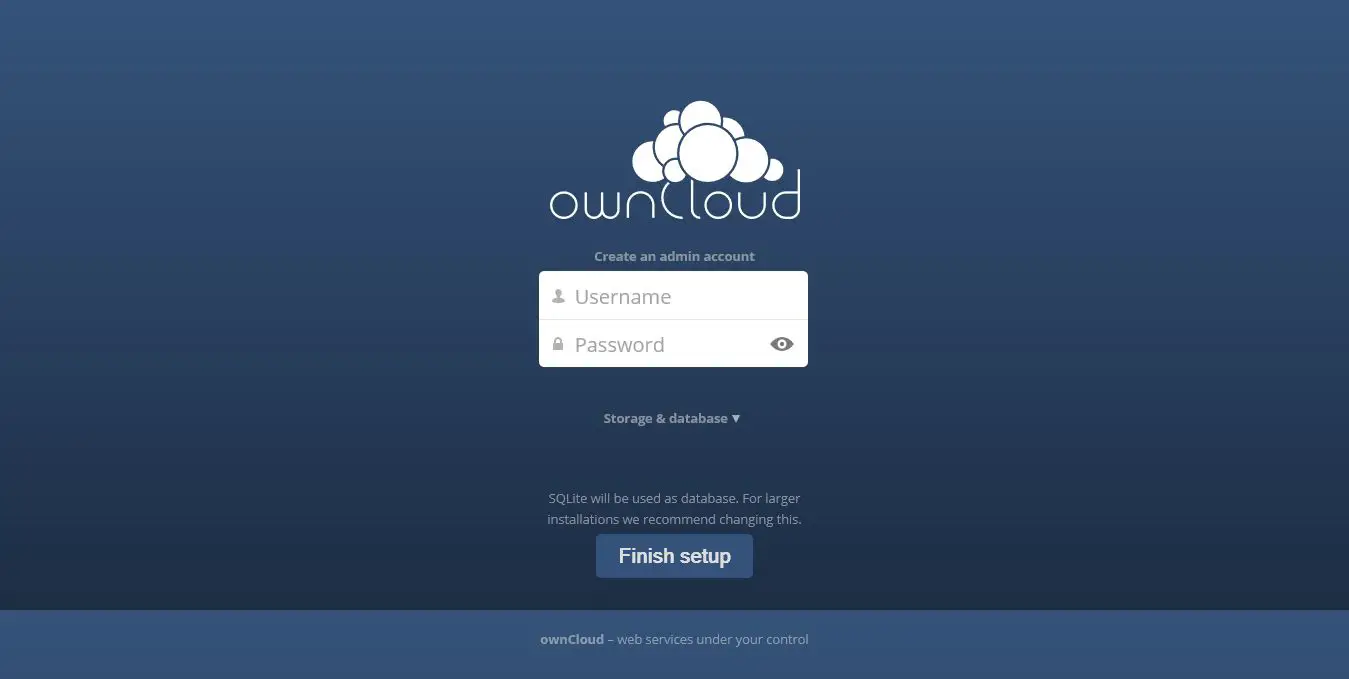
For larger environment, it is not recomended to use SQLite. Here we use MySQL, Enter admin user name, password, data folder location and database details by clicking on “Storage and database”.
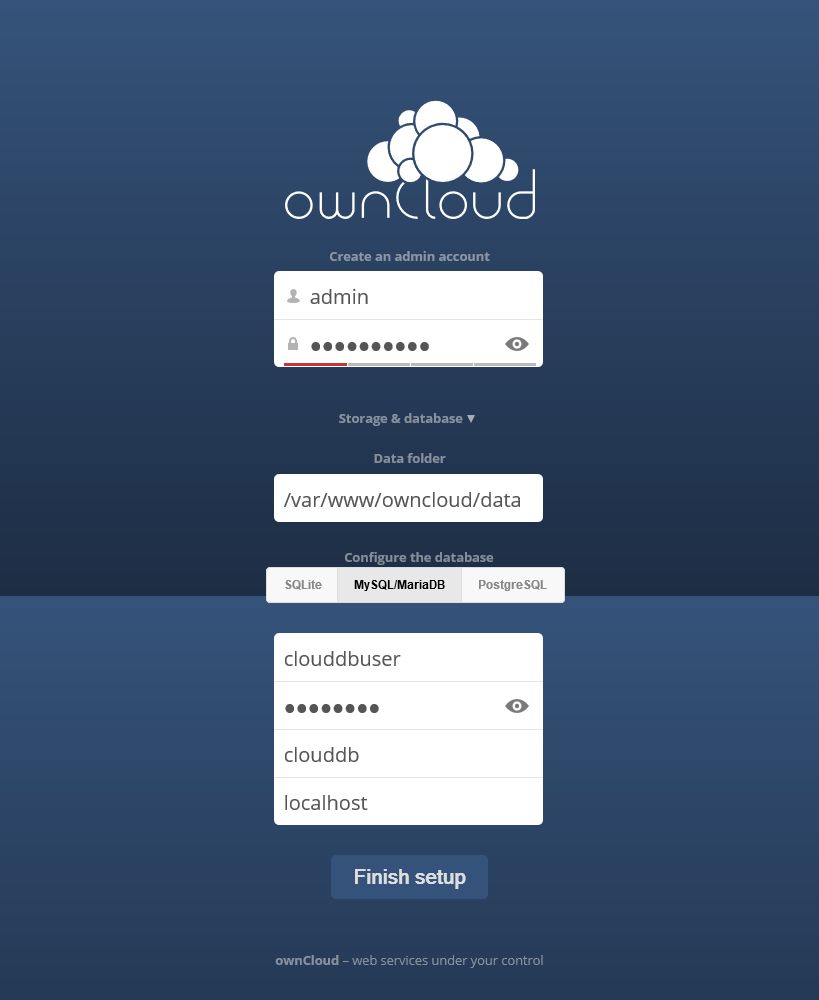
Alternately you can also download ownCloud client or apps for smart phones to upload the files.
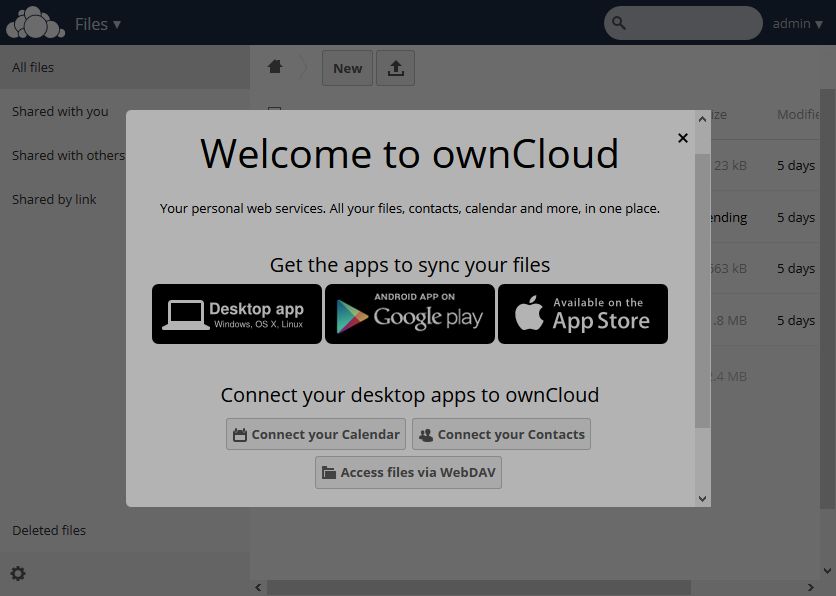
Now you can upload a files via browser.
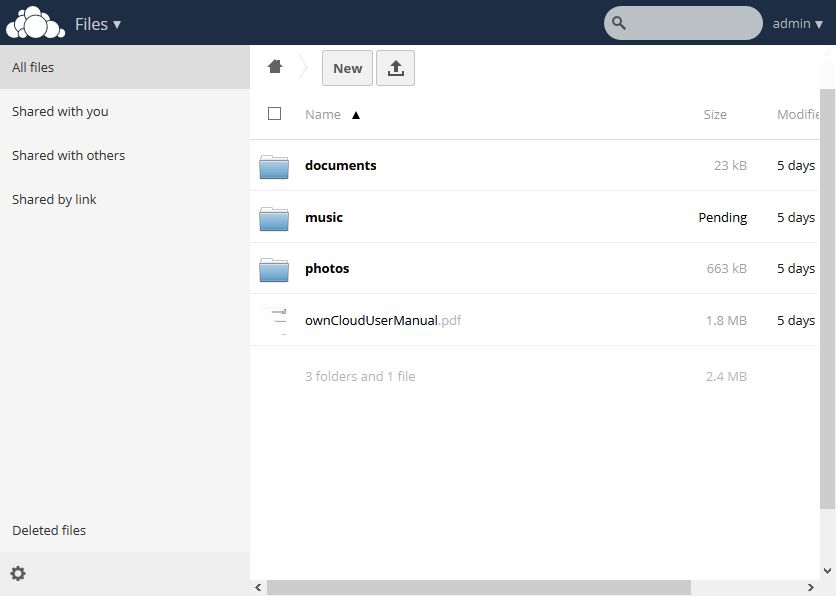
That’s All!.
